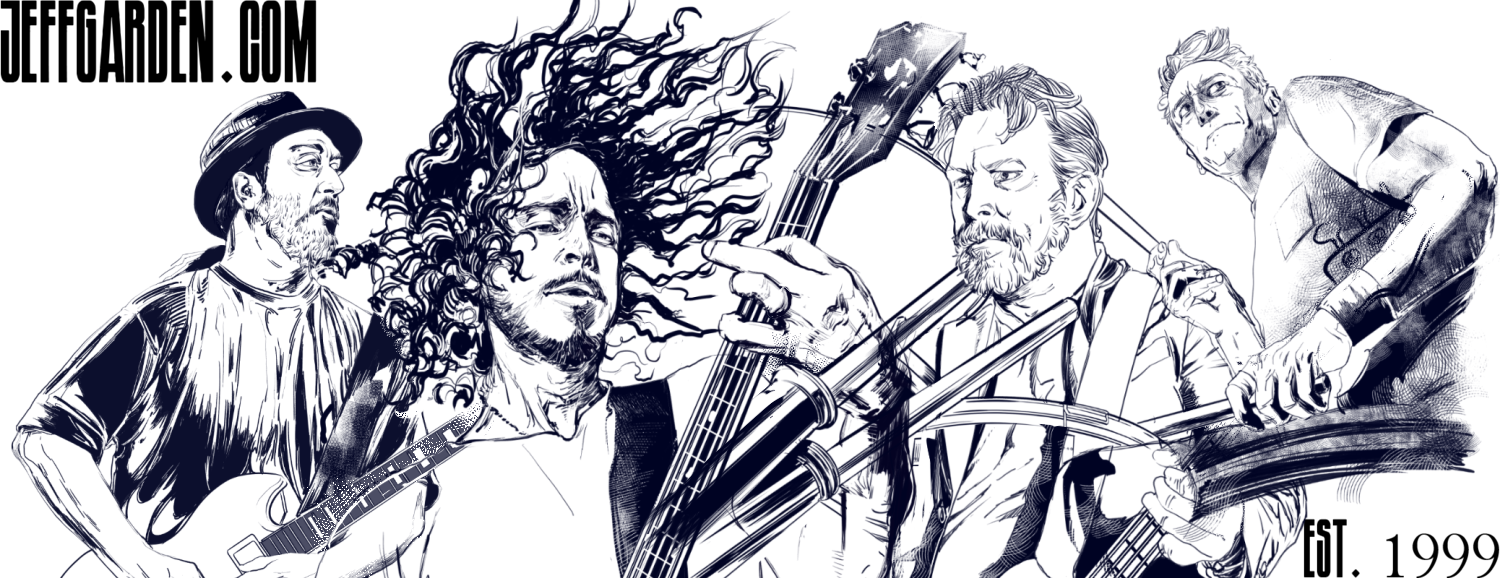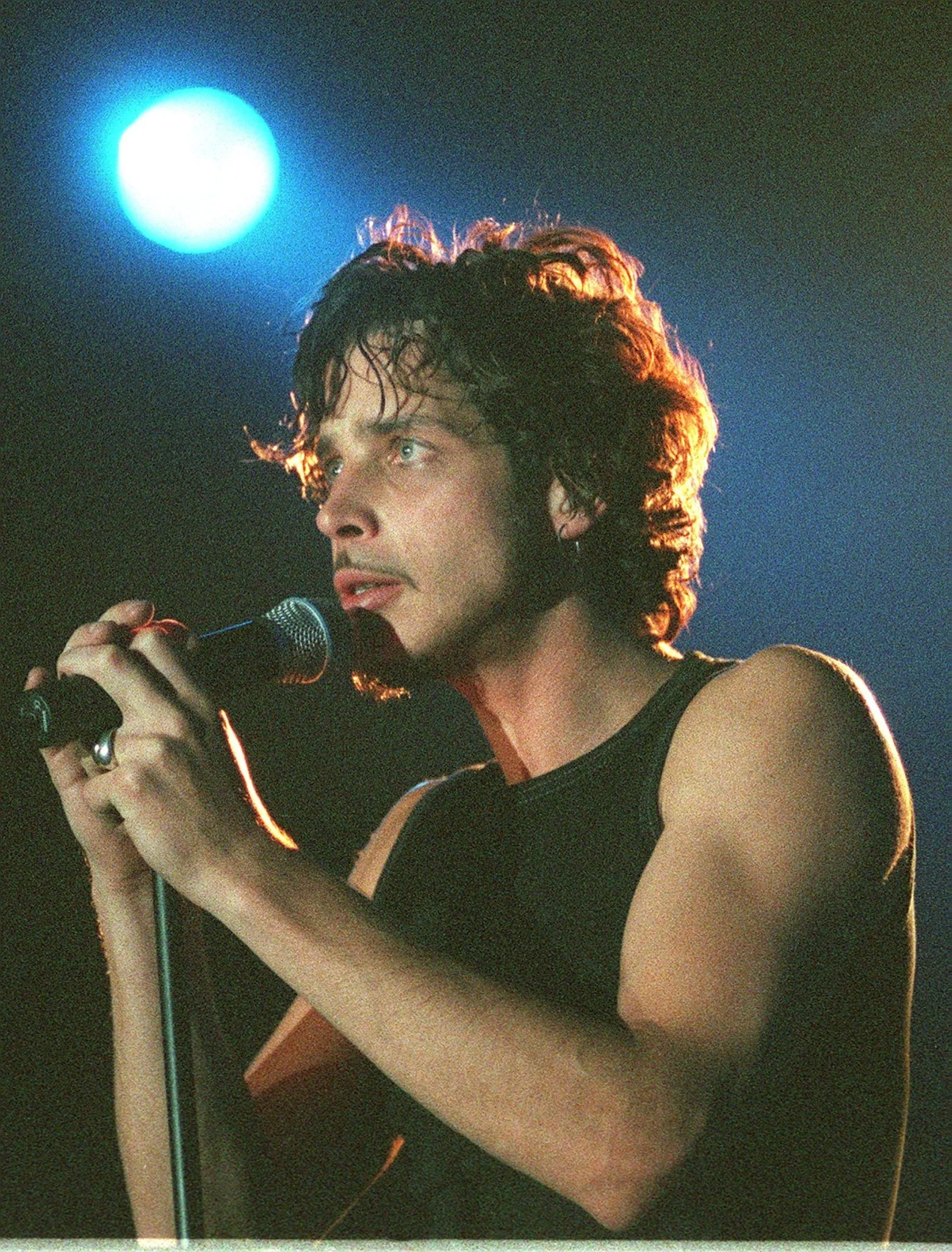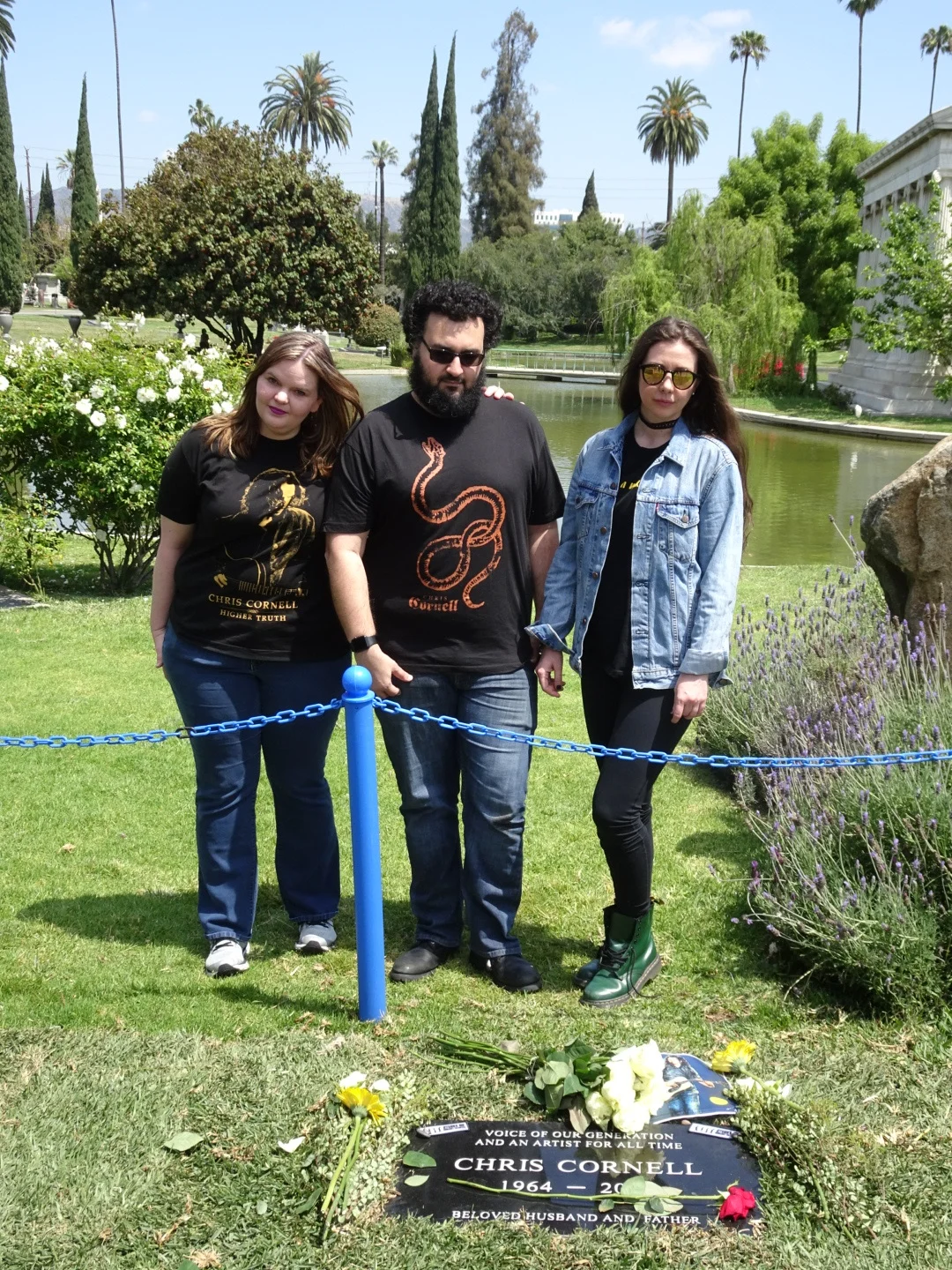SeattleTimes: Remembering Chris Cornell: The quiet cook at Ray’s Boathouse who became a rock god
Remembering Chris Cornell: The quiet cook at Ray’s Boathouse who became a rock god
Michael Rietmulder Updated May 18, 2018 at 7:54 am
On the anniversary of Chris Cornell's death, his former co-workers at Ray's Boathouse remember those formative years together during the Seattle institution's heyday.
By 11 a.m. there was usually a line outside the door, but the ragtag kitchen crew didn’t care. They had traditions. The tight-knit band of back-of-house comrades had already finished prepping for the lunchtime rush that would hit Ray’s Boathouse during the early ’80s, and before the doors opened, they’d be in the parking lot, blowing off steam at a basketball hoop.
The youthful brigade of cooks and dishwashers played as hard as they worked, and they did it all together.
Among them was a quiet, longhaired teenager with a wry smile and wicked sense of humor, once you got to know him. Chris Cornell, who died one year ago today, was an alright ballplayer and an everyman in the kitchen, after working his way up from dishwasher. However, his true calling was impersonating rock stars while hosing off floor mats down by the dock.
“He could do that Billy Idol scowl — that kind of sideways smirk and his lips would purse,” recalls Wayne Ludvigsen, longtime Ray’s chef.
A decade later, a generation of wannabe rockers would be impersonating the kind, low-key Ray’s kitchen hand, who became one of the most distinct voices in modern rock history as the lead singer of Soundgarden and Audioslave. But for a brief period during their formative years, the two Seattle icons had an intertwining history.
The voice from the dish pit
Back then, Ray’s was the kind of bustling joint you needed an in to get a job at, and Chris’ older brother Peter was his. The younger Cornell later paid it forward by getting his roommate Kevin Tissot a job there. The rebellious teens raised by single mothers met as sophomores at a North End alternative high school and bonded over a love of Elvis Costello and the Clash, and a disinterest in school. The two “momma’s boys” moved in together at 17, though they still regularly hung out in their mothers’ basements (Tissot and others say Soundgarden’s “Full On Kevin’s Mom” is about his mother).
After the two “trashed” a place on Lake City Way (“the garbage just proliferates,” Tissot says), they found another house in Ballard with other friends, having late-night existential conversations after work and competing to date the hostesses and waitresses that would get hired at Ray’s each summer. “I think girls liked Chris more than they liked me at the time, which was frustrating,” Tissot says.
Like Tissot, dishwasher Duane Ochs connected with Cornell through music. A few months before Cornell started at Ray’s, Peter noticed Ochs, who was about Cornell’s age, showing up for his shifts with a guitar slung over his shoulder. Soon Ochs, 14 or 15 at the time, was coming over to their house near Golden Gardens to jam with Cornell, who played drums. Apparently teenage Cornell wasn’t much of an interior decorator and, as Ochs recalls, his bedroom in the family’s converted garage had a bed, stereo, a dresser, his drum kit and little else. It was there that Cornell first started singing.
“His sisters were out in the driveway and they’re like, ‘Who was singing? Who was that?’” Ochs says. “I’m like, ‘It was Chris.’ … He was a very adequate drummer, but when he got behind the mic, you could tell, like his sisters, he had a very unique, powerful voice.”
It wasn’t long before the rest of their co-workers caught on to Cornell’s talent. The crew often had KISW blasting in the kitchen and occasionally Cornell would pick up a tune in the dish pit. “He’d sing very softly,” says Ernie Davis, another Ray’s alum. “We’d all be listening — ‘Oh, Chris is gonna sing. Let me turn this down.’”
Every year around the holidays, Ray’s brass would throw a big staff party on a Sunday night. A husband of one of the managers had a two-man band and was hired as the entertainment one year, recalls Dean Swanson, who also worked in the kitchen. Everybody was drinking, talking when all of a sudden Cornell — who Swanson says was 17 or 18 at the time — made a move.
“Chris, for some reason, got up from the table we were sitting at and went over and grabbed the microphone, and talked to the guys for a few minutes and he belted out ‘Twist and Shout,’” Swanson recalls. “He was a teenager. We’re all looking at him, going ‘Uh, what are you doing, dude?!’ I mean, his voice was so powerful and wonderful.”
At the time, Swanson joked that Cornell should form a band.
One of Seattle’s hottest restaurants
Besides parking lot pick-up games, another Ray’s pastime was giving their boss hell. Not much older than his young staff, Ludvigsen was the recipient of endless pranks: hidden knives, changed delivery dates — “Just mean stuff that would throw the day off,” says Tissot, Cornell’s former roommate. A particular favorite was trying to get Ludvigsen, who was notorious for reducing food waste, to puke by sun-baking spoiled food in a bucket and getting their unsuspecting chef to take a whiff. One day Cornell and another co-worker went a step further, convincing Ludvigsen to taste test a sauce that had obviously gone bad.
“As soon as I stuck it in my mouth, (I realized) it was a bet between those two guys,” Ludvigsen says. “They had a pretty good chuckle. They made me eat something totally rancid.”
In the early ’80s, Ray’s was in its prime. Ludvigsen took over as head chef in 1979 and is often credited with making Ray’s a local fine-dining institution, sourcing the best and freshest local seafood. In 1983, Ray’s was among the first Seattle restaurants to serve Copper River salmon.
Despite the grind of working in one of Seattle’s hottest restaurants at that time — “It was Studio 54 on the West Coast,” Swanson says — many of the cooks described it as the most fun job they ever had. “Auto brew” was another kitchen ritual Ochs remembers fondly. When the dining room was rocking and they hit 300 dinners, a pitcher of beer would appear through the dish window.
From the sounds of it, the occasional pitcher wasn’t the only thing available during an era Ludvigsen describes as “the golden years — pre-AIDS, mid-coke.”
“There used to be cocaine from all the fishermen that’d come back from Ballard and they would do coke right on the bar,” recalls former employee Mike Shanks, who later became perennial political candidate Mike The Mover. “There was coke everywhere.”
According to most of the people we spoke with, Cornell didn’t really participate in such extracurriculars then. In 1994, he told “Rolling Stone” that he was a “daily drug user” at 13, but quit by the time he turned 14.
Soundgarden takes shape
As Soundgarden took shape in the mid-’80s, with Ray’s maintenance worker Scott Sundquist briefly on drums, Cornell and his brother left Ray’s and worked at Rain City Grill on Capitol Hill, owned by former Ray’s kitchen boss Mike Brown. Peter Cornell was also a musician, leading the band Inflatable Soule with two of their sisters to local acclaim in the early ’90s. The Cornell brothers used to practice guitar licks out on the back stairwell where Chris and Davis, another Ray’s carry-over, would have pull-up competitions on the awning.
One night in 1986, Brown recalls coming into the kitchen and Davis and the crew were excitedly playing what Brown thinks was an early recording of Soundgarden’s “Big Dumb Sex” — its chorus marked by a string of f-bombs. Cornell was shy about asking for favors, Brown says, and later that night Peter asked him to give his little brother a ride home. On the way, Brown also gave him some unsolicited advice.
“I said ‘Chris, don’t you think you should tone it down a little bit? You can’t say that on the radio,’” Brown recalls. “His response was, ‘We have our following.’ I mean, I was his boss, so he couldn’t tell me (expletive) you. But yeah, basically … ‘We’ll be fine’ — that classic cool.”
As Soundgarden gained steam, Cornell eventually hung up his chef’s knives. By the time the world tours commenced and the band became a fixture on MTV, he’d lost regular contact with most of his apron-wearing brethren who came of age at the Boathouse. But whenever they’d meet during a chance backstage run-in or sporadic phone call, friends say he was the same guy who used to cruise Ballard in an old Volkswagen Thing that couldn’t drive in reverse.
In March 1997 — a month before Soundgarden broke up at the height of their popularity — Cornell made a surprise return to Ray’s. After 22 years, Ludvigsen was leaving the restaurant and the staff threw him a going away party. He doesn’t remember much of their conversations (hey, it was a party), but Cornell “stayed till the bitter end.”
“He was just a real guy,” Ludvigsen says, “and he always came across that way.”
Even though it had been nearly 20 years since Swanson had spoken with Cornell, it felt “like losing a family member” when he died last year. Ludvigsen’s party was the last time they saw each other.
“I told him how proud we all were for his success,” Swanson says, with a long pause. “And how I missed him. Of course we could believe how well he did, because we knew the talent was there. But we were so proud of what he became.”






